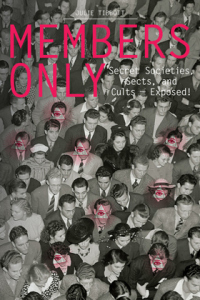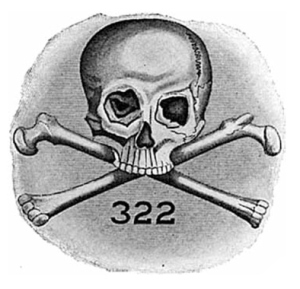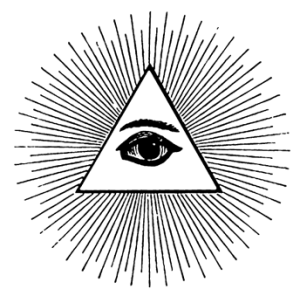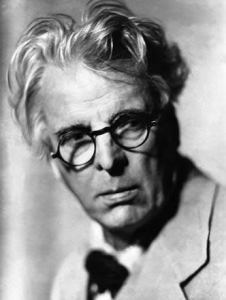7 Questions I Always Ask +1 with Julie Tibbott, author of MEMBERS ONLY
I’m super pumped to have Julie Tibbot on Write All the Words today! She’s the author of MEMBERS ONLY: Secret Societies, Sects, and Cults Exposed! – a fantastic book about one of my favorite topics. You’re going to love what Julie has to say!
E. Kristin Anderson: What was the first spark of inspiration for your latest book?

Zest Books, February 2015.
Julie Tibbott: Cults and secret societies are of interest to many people. Everyone can relate to the desire to be part of a fellowship of like-minded individuals, and the idea of being privy to some hidden knowledge is also enticing. I can identify a few of the main strands of my own fascination with these groups.
As a young child, I was very into the idea of communal living—I’d make my dollhouse people live in communes. So, when I’d hear about cults and other groups where they often lived in such situations, my interest was piqued.
Later, I became fixated on subcultures, mostly “tribes” of cool people throughout the ages. Any group that had its own unique look, music, heroes, slang, cultural references—I wanted to know all about it. Of course, many cults and secret societies share these characteristics.
I also went through the requisite young teenage Manson Family phase after reading HELTER SKELTER. I certainly never worshiped Charles Manson or anything like that, but one day my sisters and a few of our friends decided it would be fun to reenact the Tate murder scene while my mom was out. My sister was Sharon Tate with a pillow up her shirt, I was Abigail Folger in a nightgown laying outside on the lawn. When my mom got home she was greeted by “Piggies” written on the back door in ketchup, and the Beatles’ White Album blaring. Mom forbade us from playing her records after that day. She probably regretted letting us get a hold of her old copy ofHELTER SKELTER, too.
I realize now that whole scene was kind of gross. But (arguably) less harmful groups got my attention, too. The Amish, for instance, have always intrigued me. I visited Pennsylvania Dutch/Amish country frequently as a kid. My first tattoo was an Amish hex sign (those are the things they hang on their barns).
Over the years, I’ve read some memoirs of people who spent time in cults. A few such titles that stand out are MY LIFE IN ORANGE: Growing Up with the Guru by Tim Guest (about living with the various communes of Indian guru Bhagwan Shree Rajneesh) and SEDUCTIVE POISON: A Jonestown Survivor’s Story of Life and Death in the People’s Temple by Deborah Layton. And as an editor, I’ve been drawn to stories that take place in isolated communities, outside of mainstream life.
All of these things, plus a general interest in historical oddities, inspired me to write MEMBERS ONLY!

Interior art from MEMBERS ONLY: The Skull & Bones Club!
EKA: What kind of planning do you do before you start writing?
JT: For MEMBERS ONLY, I did some outlining. But for most anything I write, even if I have the overarching structure in the back of my mind, I’ll just gravitate toward writing whatever part I like best or that I’m in the mood for at that particular time. People often stress out about how to begin a piece of writing—but you don’t necessarily need to begin at the beginning! If you just start writing the part you want to write, you may be surprised at where it takes you.
EKA: If you could have lunch with any writer living or dead, who would it be?
JT: This may be too obvious an answer, but I’d love to join Dorothy Parker for lunch at the Algonquin in the 1920s. I’m sure she’d be entertaining company, and I’d get some bon mots for the road.
EKA: What is the first book you remember reading and enjoying as a young reader?
JT: I was a voracious reader, and I enjoyed all of it! But the first piece of writing I can recall having a strong emotional impact on me was a serialized story in Stone Soup magazine. Stone Soup is known as “The New Yorker for kids”—all the stories and poems and illustrations in it are by children. The particular story that caught my fancy was about the travails of a foster dog as she was shuffled from one home after another. I had just learned to read, and I read this story over and over, and it always made me cry. I wish I could find it now and see if it still has the same effect on me. But I think what really made it so powerful and memorable is that it sparked my first realization that I could, conceivably, write, just like the kid who wrote that story.

Interior art from MEMBERS ONLY: The Eye of Providence.
EKA: If you could go back and time and tell your teen self ONE THING AND ONE THING ONLY, what would it be?
JT: Adopt a healthier lifestyle.
EKA: If you haven’t had a book challenged or banned, would you want this to happen to you? Why or why not?
JT: I’ve never had one of my books challenged or banned (that I’m aware of), but I’d certainly be honored by such a gesture! If a writer’s work makes someone feel threatened enough that they have to suppress it, chances are that same work is just as strongly appreciated by someone else. People’s issues with certain books never cease to amaze me. I worked at Scholastic at the height of HARRY POTTER mania, and some of the complaints we’d get about that, and other classic children’s books, were just so ridiculous. Satan was incited a lot. It would never occur to a child reading these stories that the devil had anything to do with it, unless they were told so by a disapproving adult. There would be complaints about books featuring magical creatures, or talking animals, because “God didn’t create unicorns.” I guess some people are just opposed to anything requiring imagination. What miserable lives they must lead.
EKA: What kind of work do you really want to try to write, but haven’t ever attempted? And what do you think is holding you back?
JT: I would like to write a sonnet, but I’m not much of a poet. Coming up with a good piece of writing inside of those structural confines would be quite an achievement. I’ll give it a go one of these days!

William Butler Yeats, Ghost Club member.
EKA: If you HAD to join one of the secret societies or groups in your book? Which one would it be, and why?
JT: I think it would have been cool to be part of the Ghost Club, a paranormal research club that started in mid-1800s at Cambridge’s Trinity College. Women couldn’t join the Ghost Club during its heyday, but the group included lots of esteemed gentlemen I wouldn’t mind meeting, including Charles Dickens, W. B. Yeats, and Arthur Conan Doyle. Though ghost hunting doesn’t seem terribly exciting to me, I would be interested in exploring many of the allegedly haunted historic sites around the UK that the club has investigated over the years, including Borley Rectory (known as “Britain’s most haunted house”), and Glamis Castle (the dramatically creepy inspiration for the setting of Macbeth). The Ghost Club actually still exists today, and is much less exclusive than it was back in Victorian times, so maybe I’ll drop in on a meeting next time I’m in London—but only if I can sit next to the spirit of Charles Dickens.

Julie Tibbott.
Julie Tibbott is an editor of teen fiction at a major publishing house. She lives on New York City’s Lower East Side, once home to many organized crime syndicates, street gangs, and underground anarchists. She’s not a member of any secret societies…or is she?









